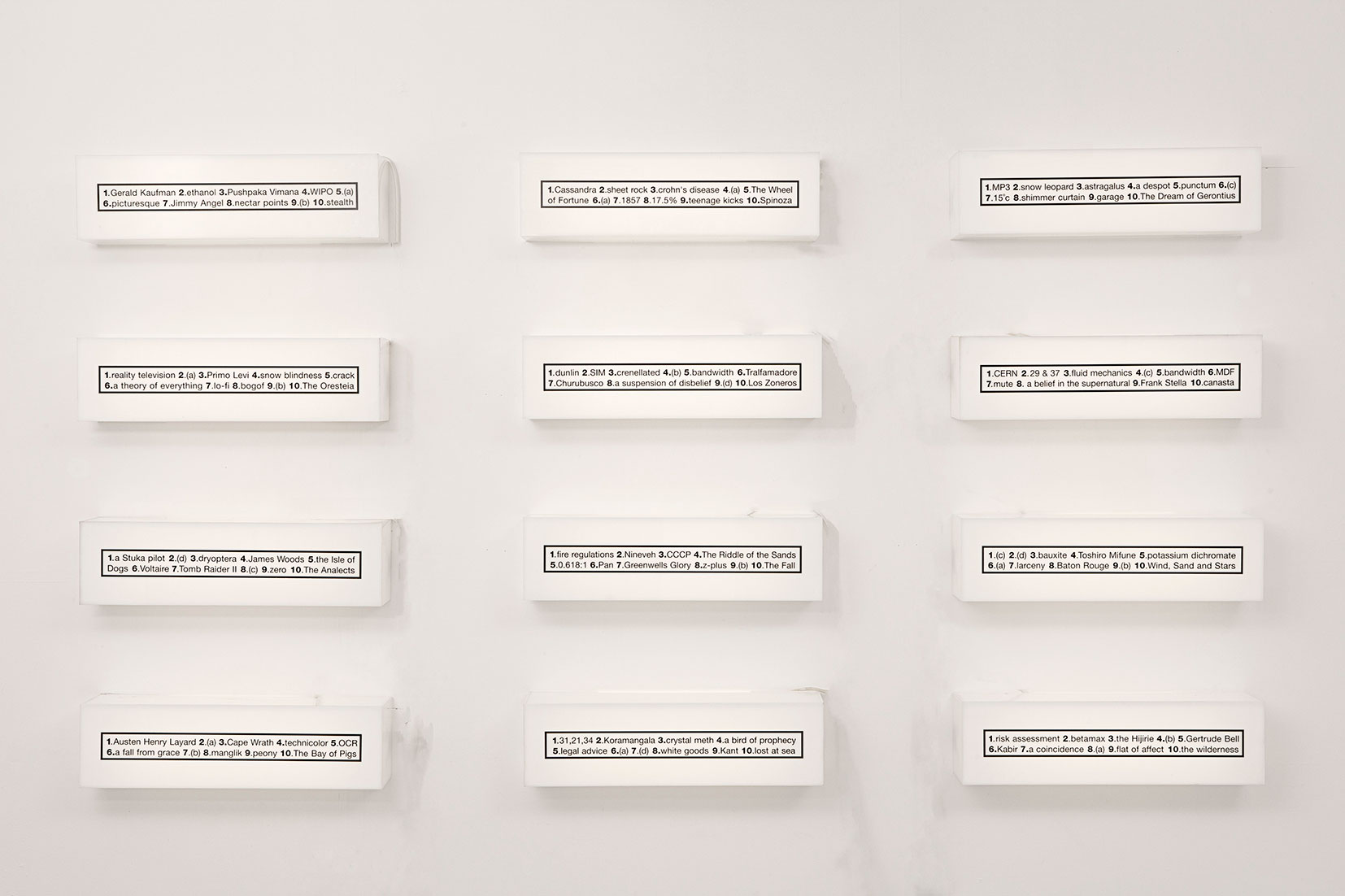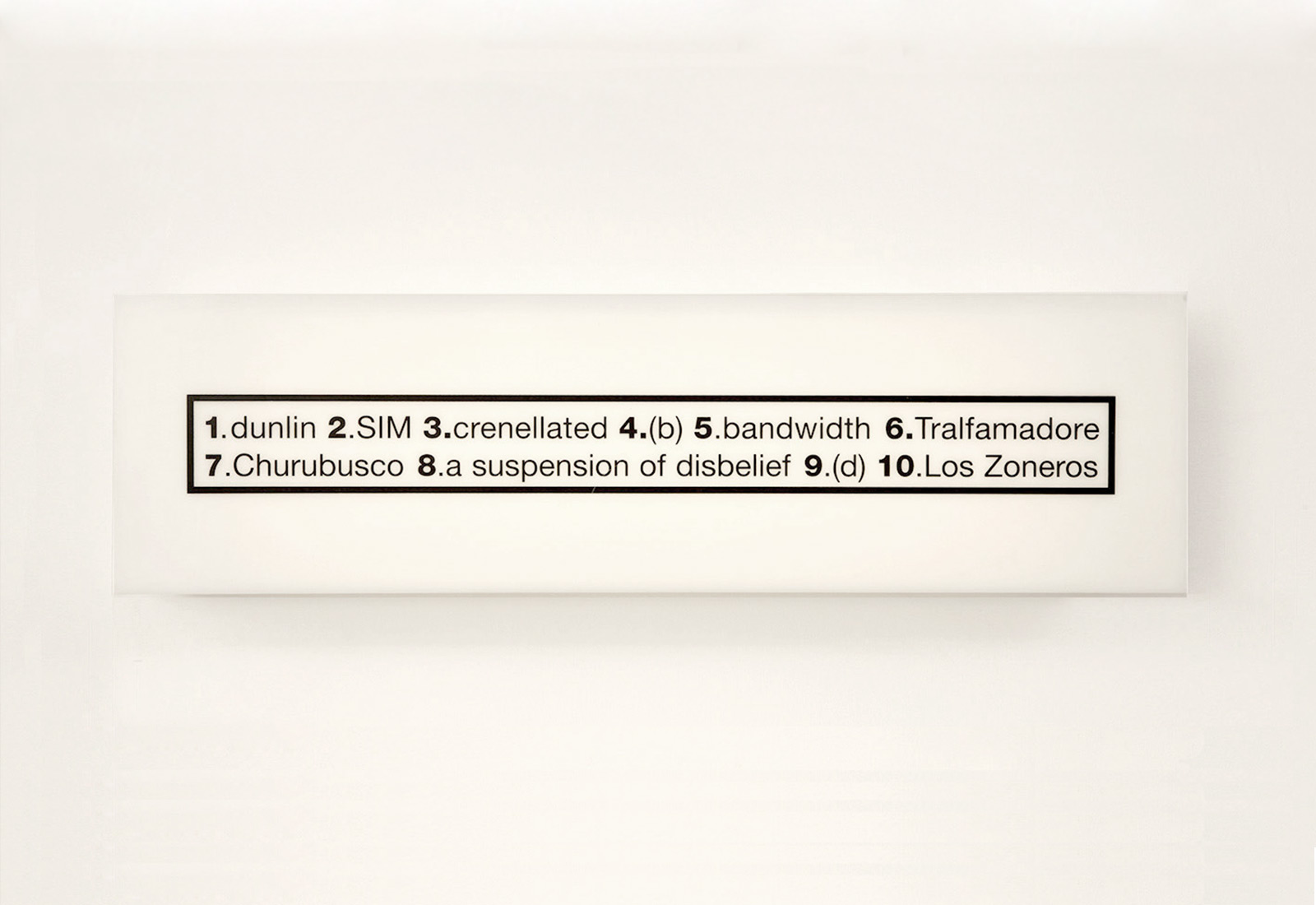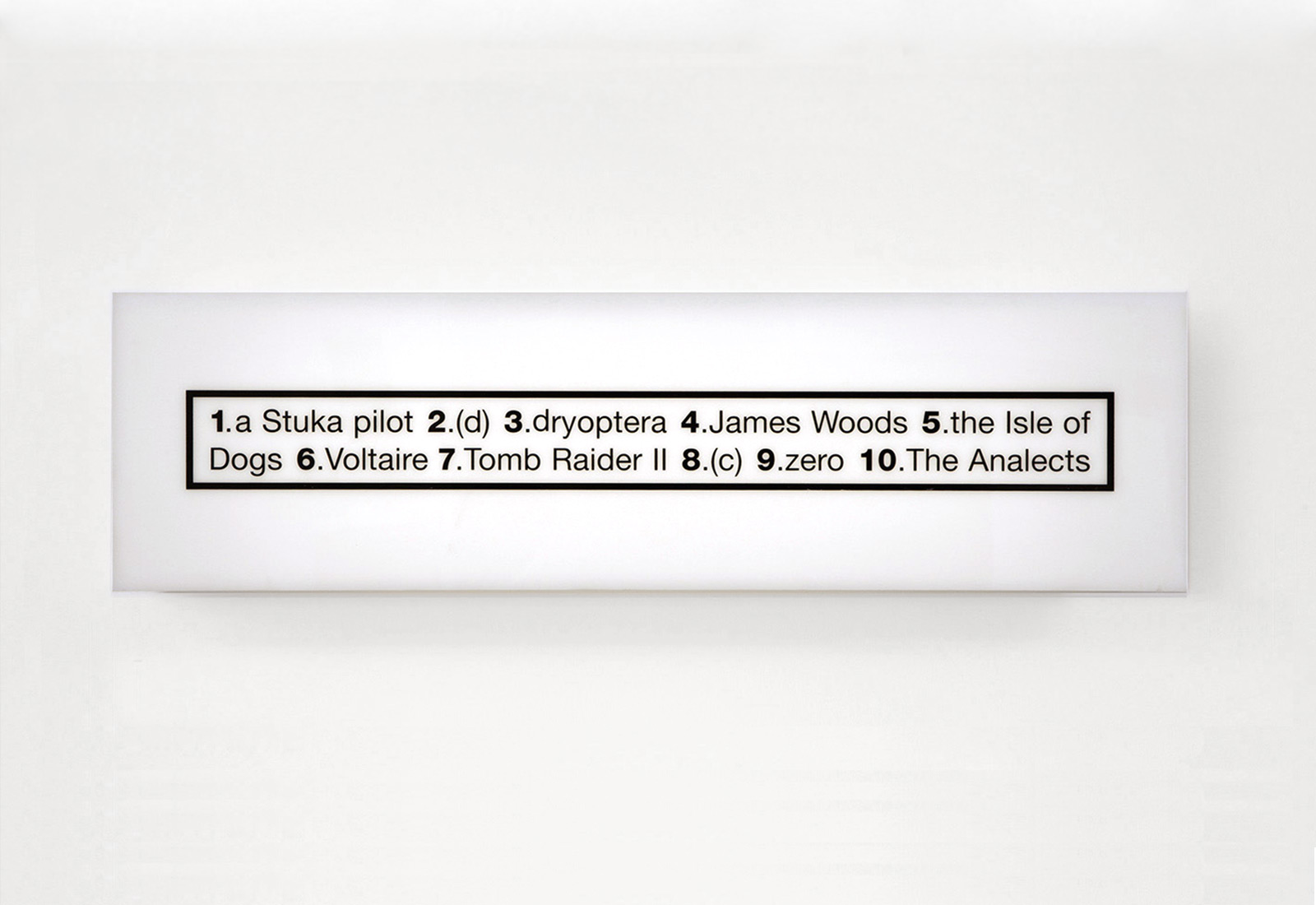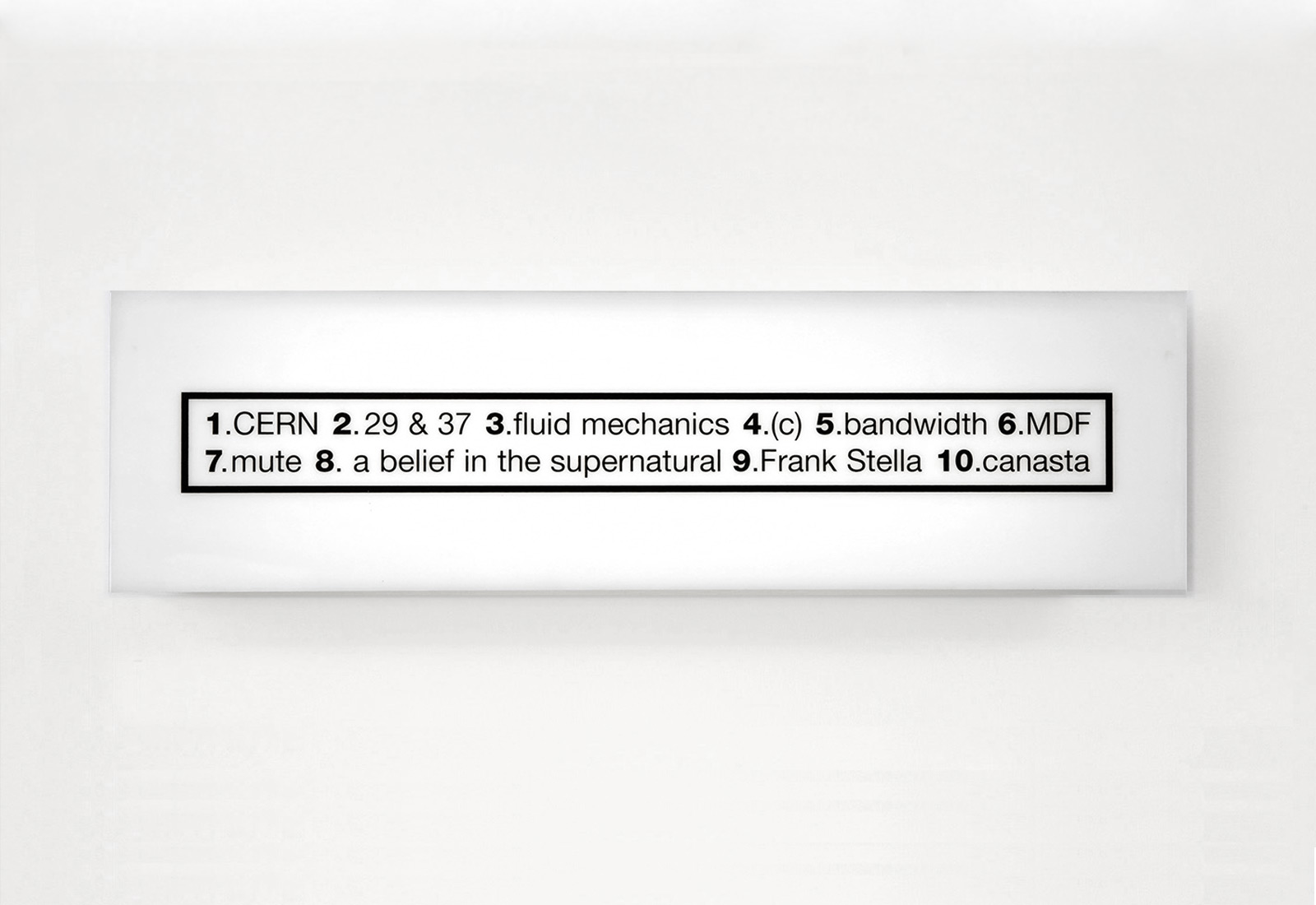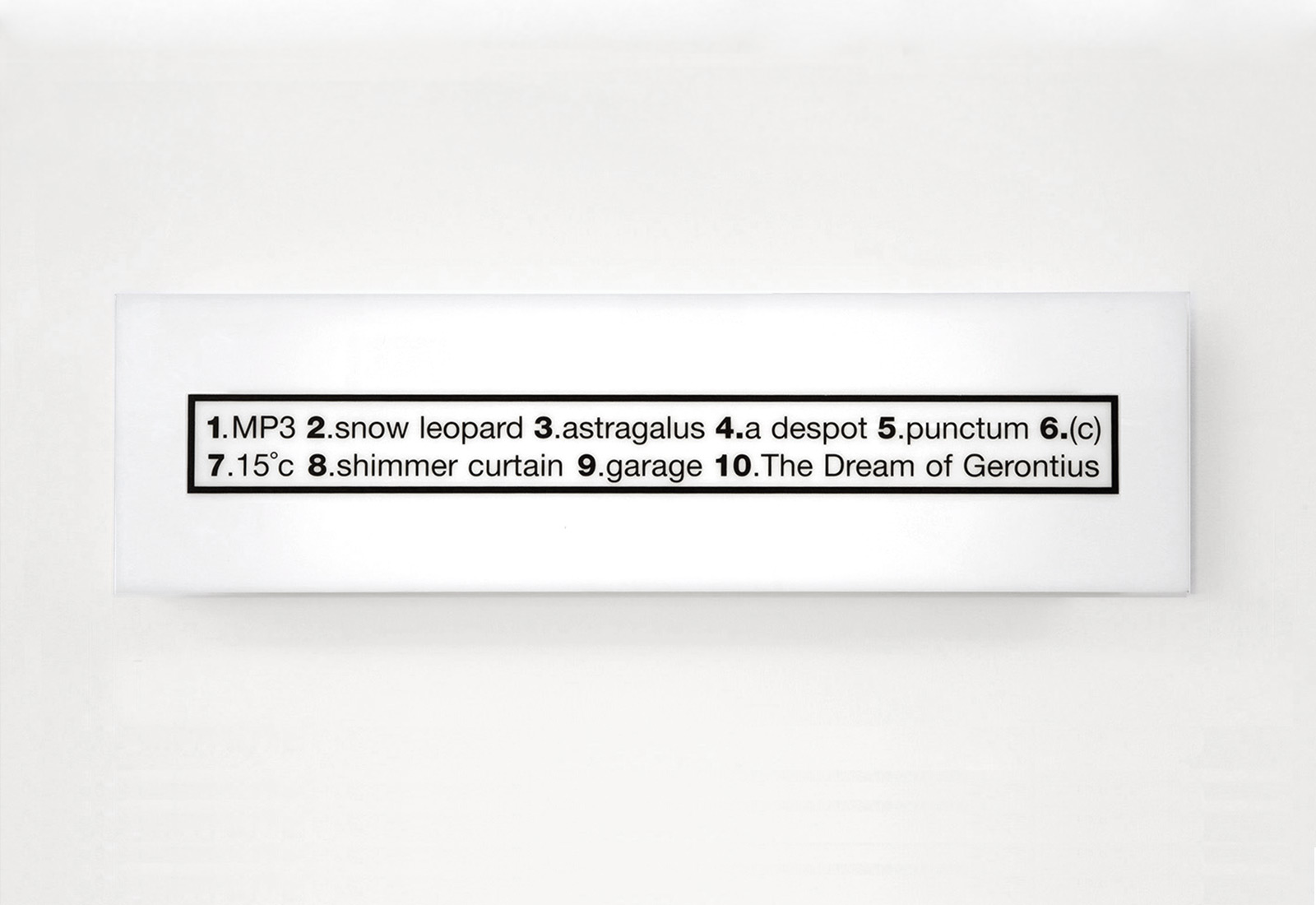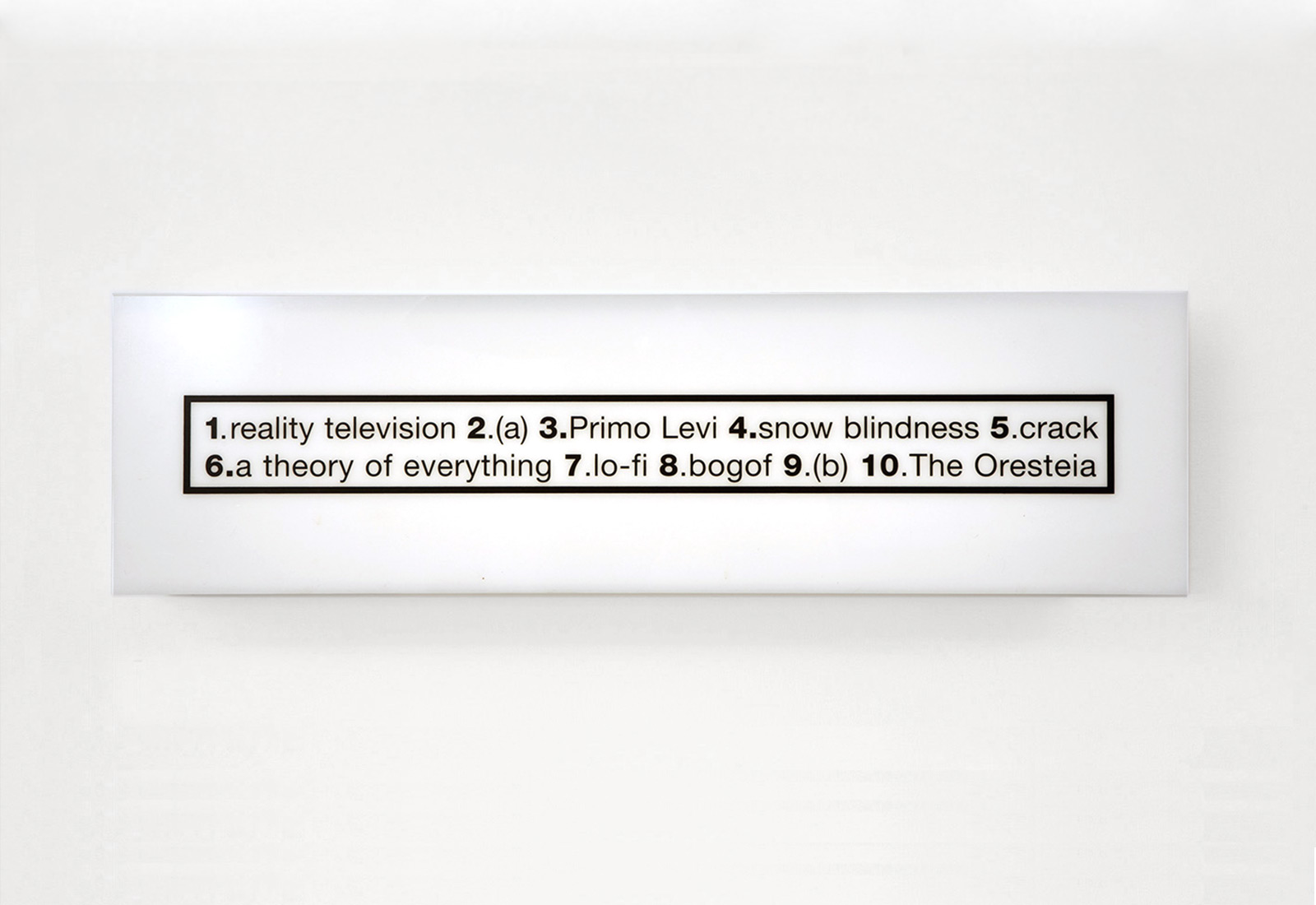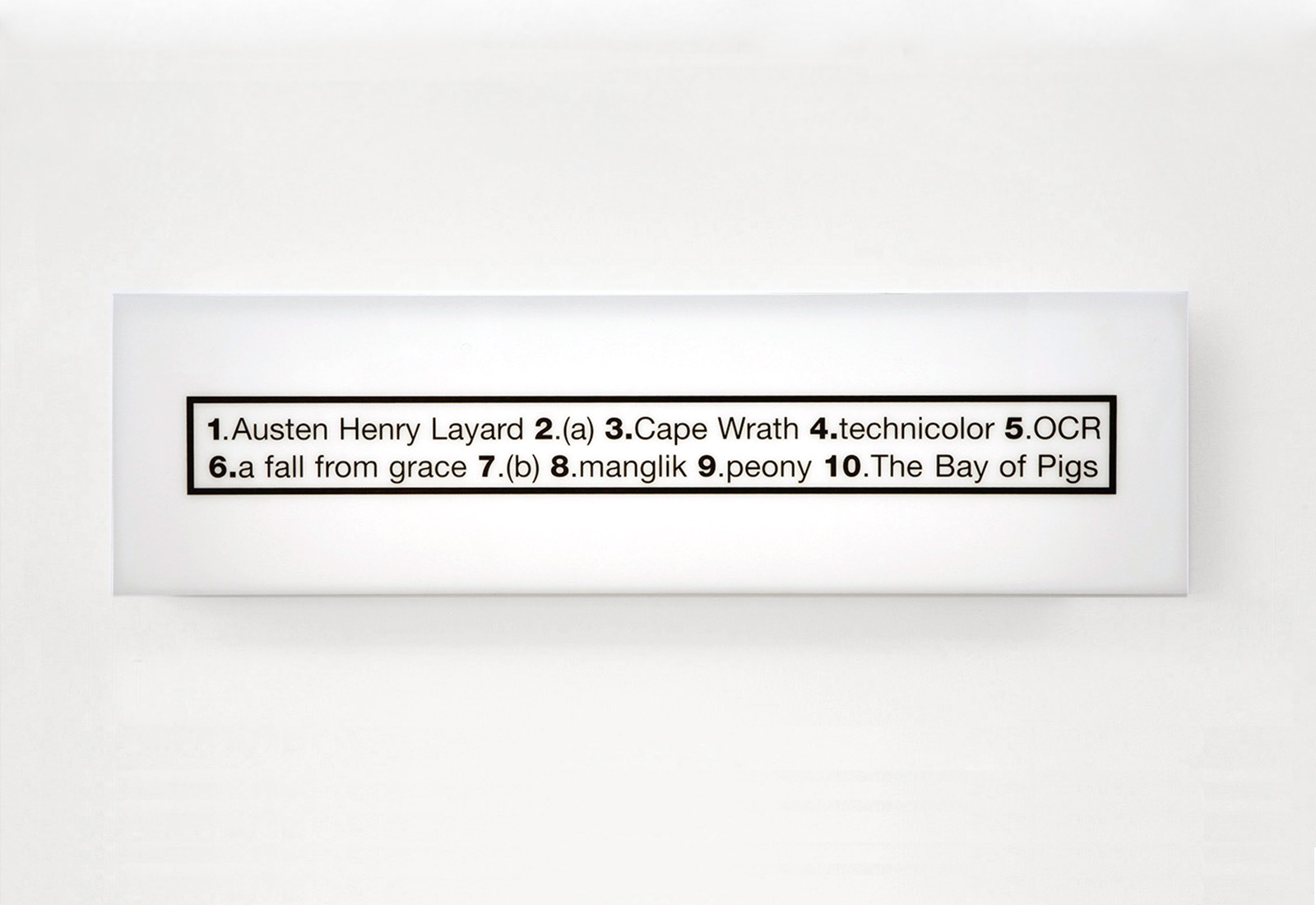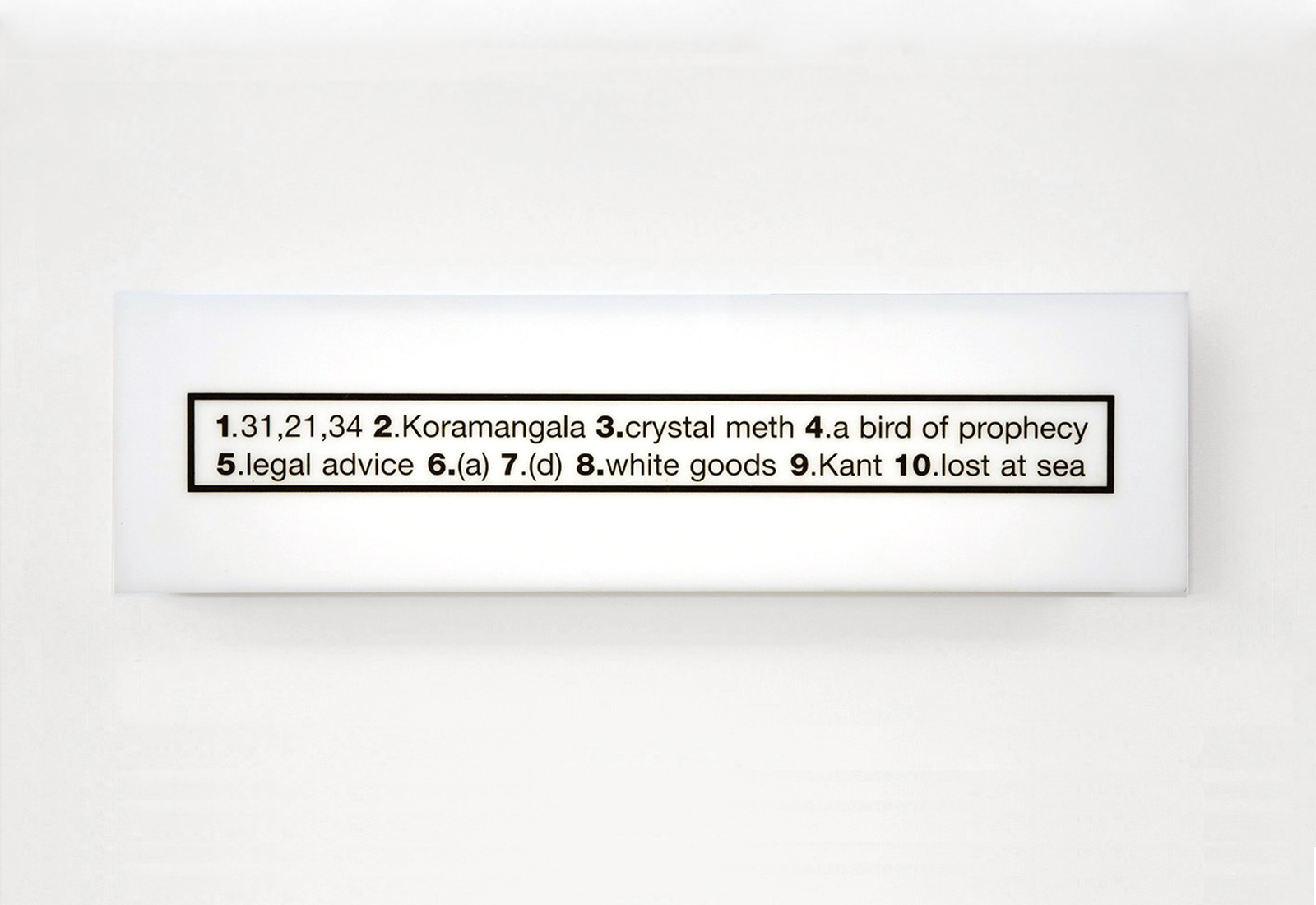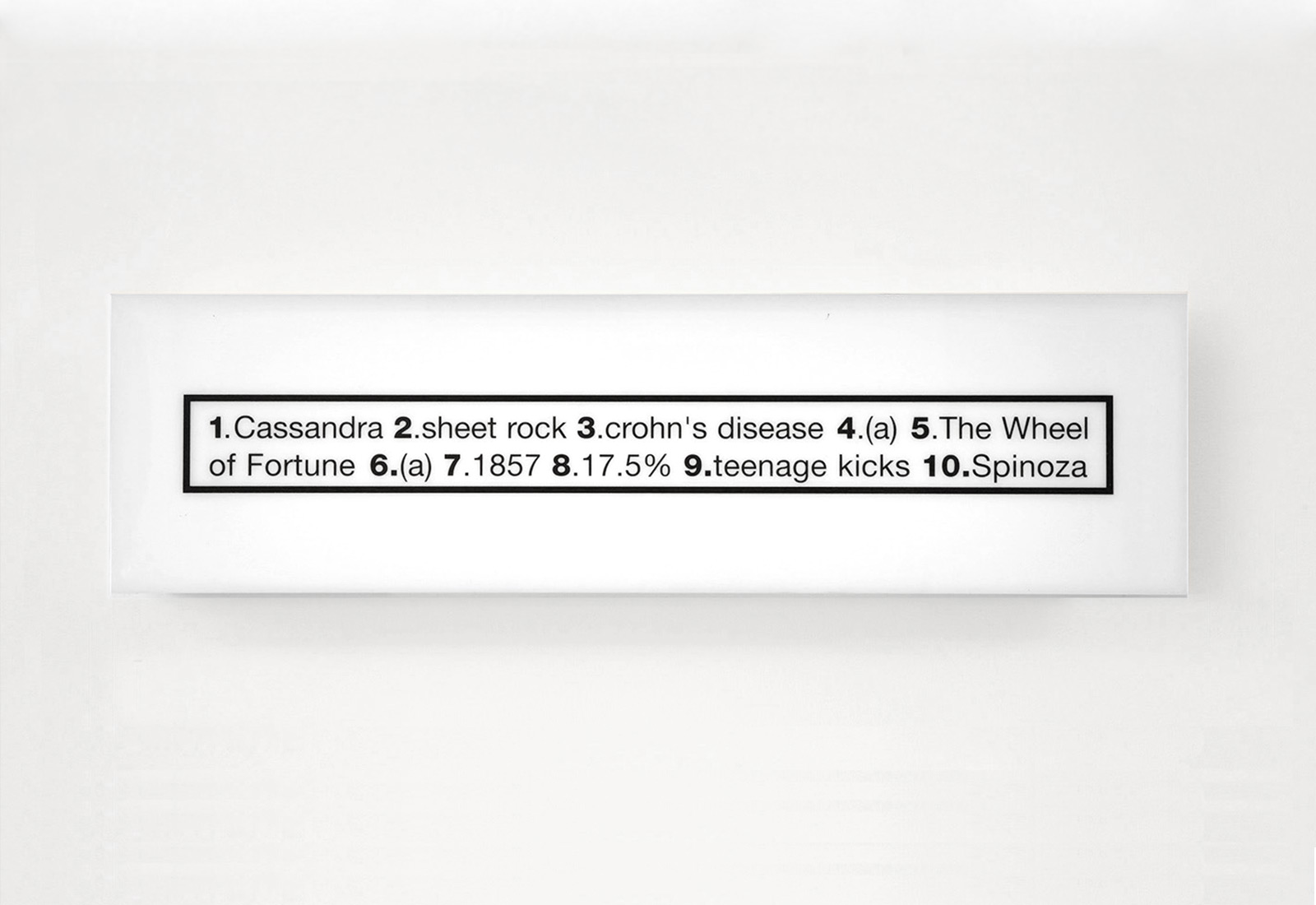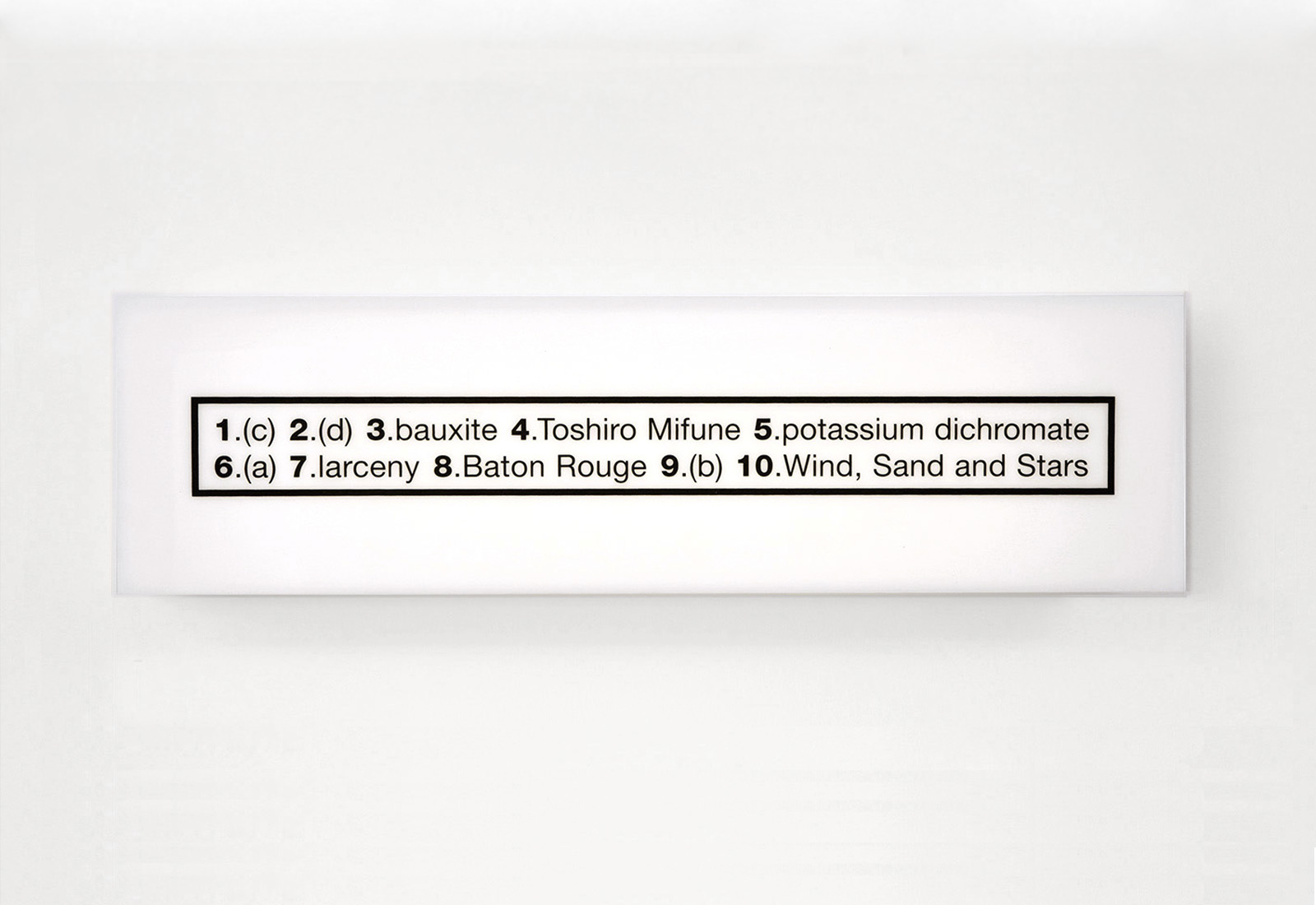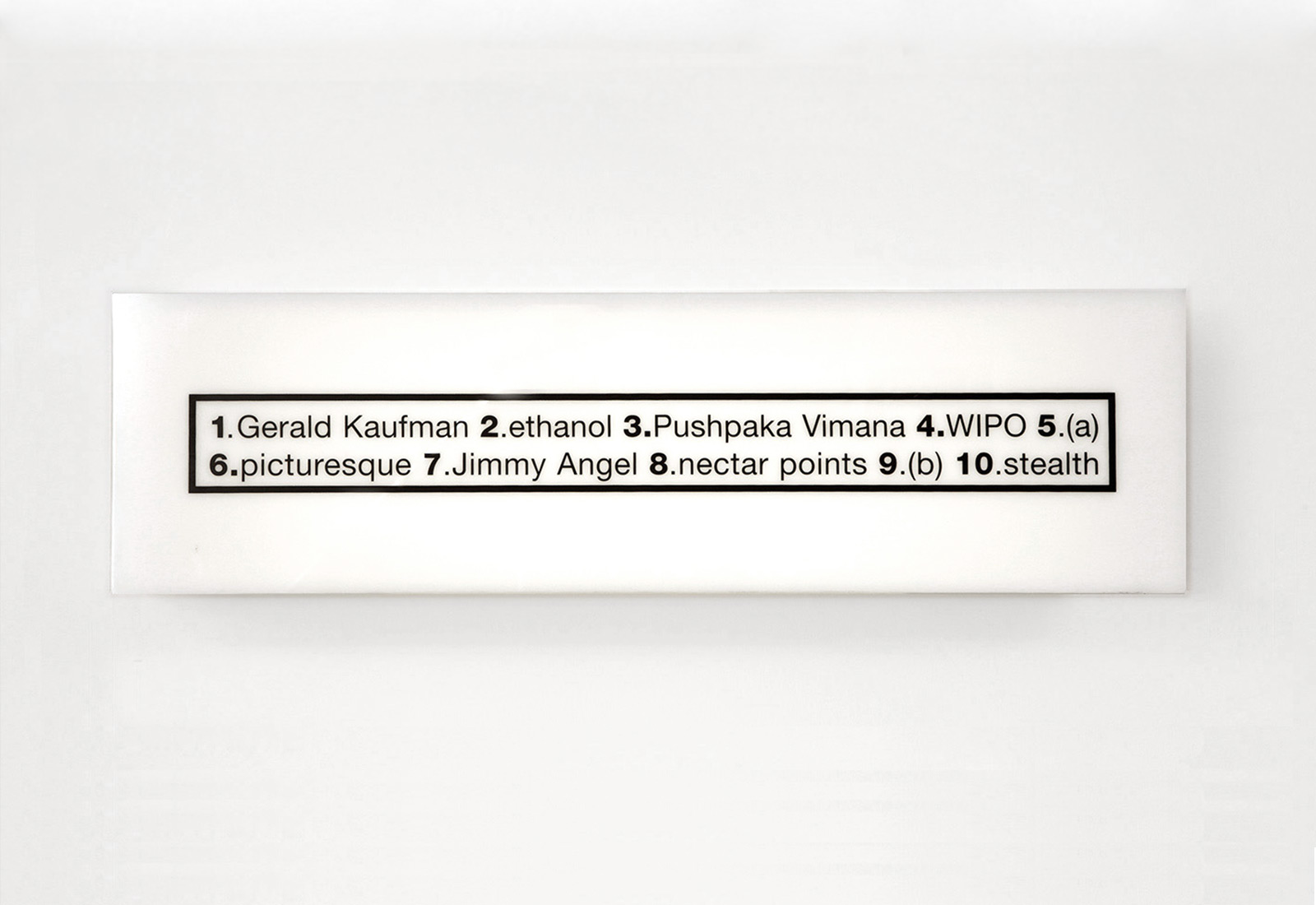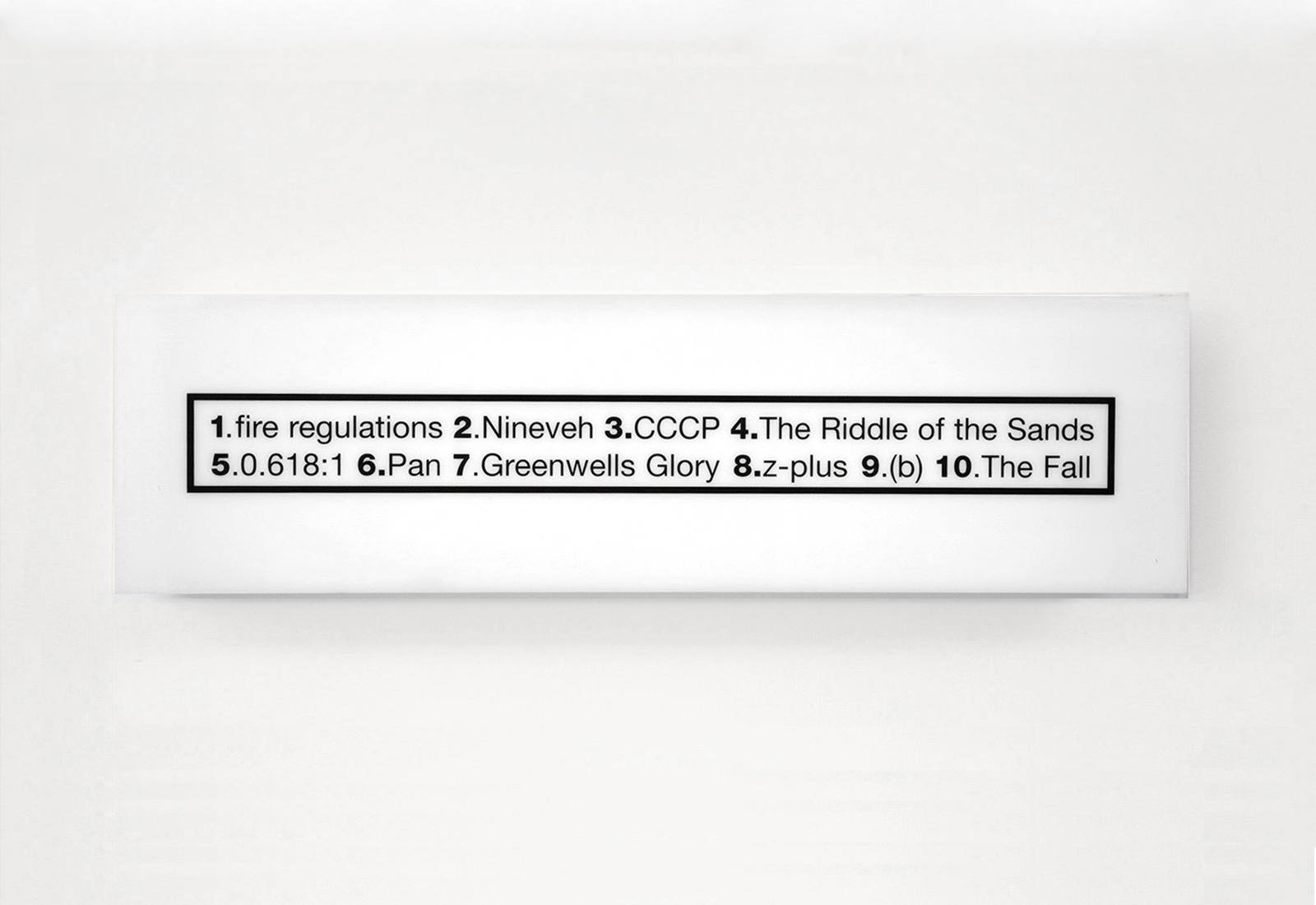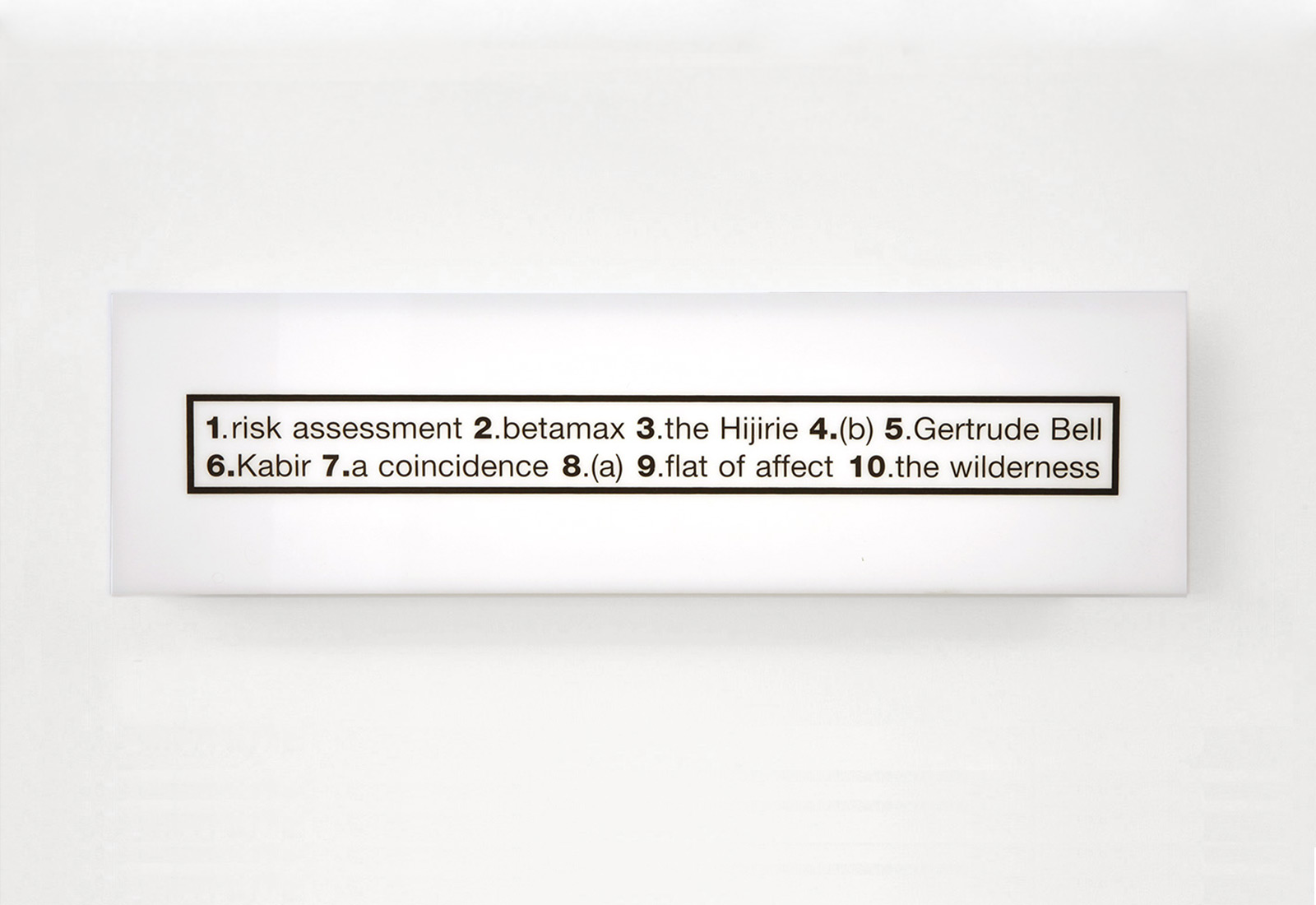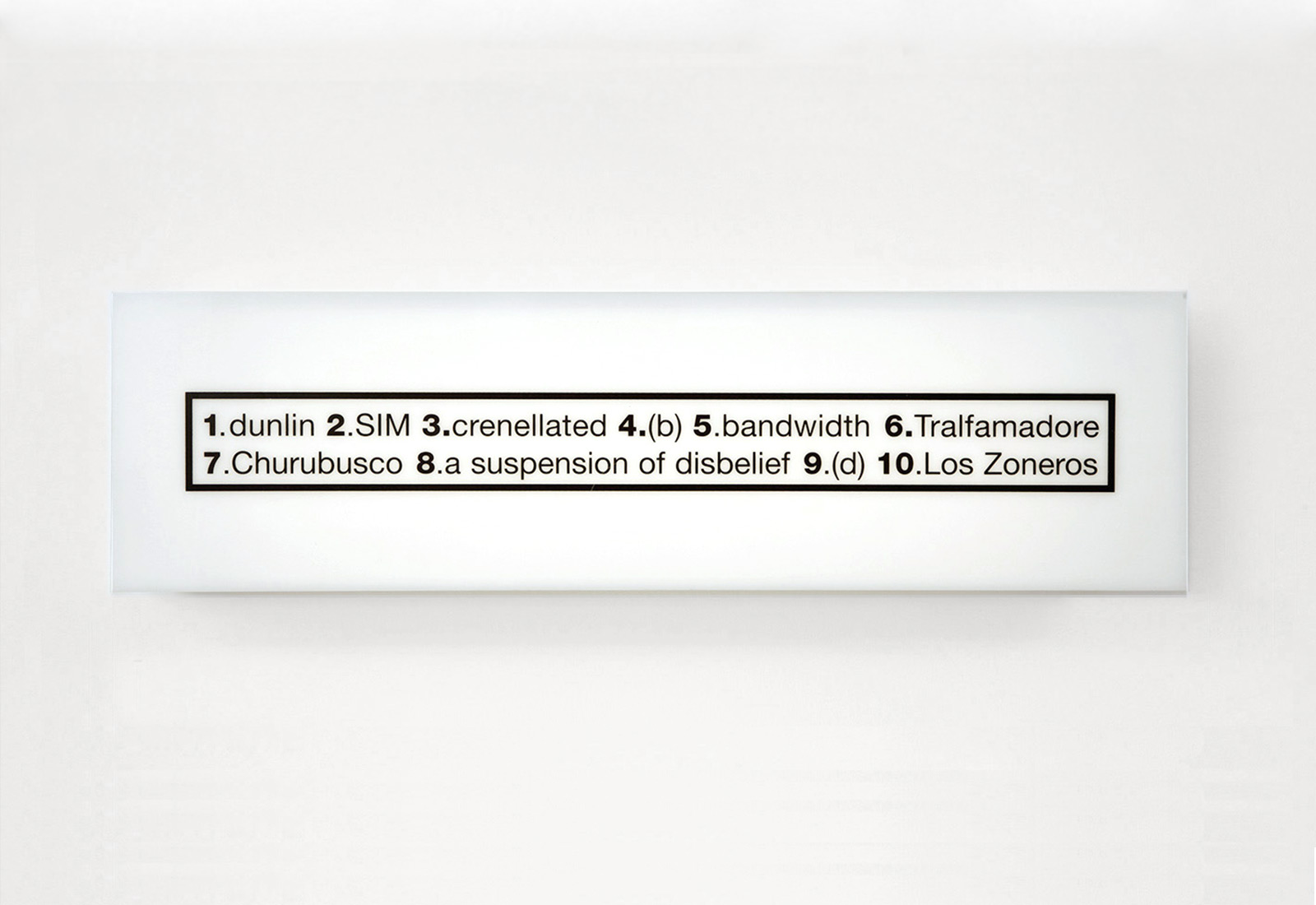A Coalition of the Willing – A footnote on the autobiographical nature of knowledge.
Screen-printed lightboxes (640 x 154 x 180mm) and containing 2’ twin daylight flourescent tubes
Is it really possible to operate outside out own conditioning? The seeming random collection of words and phrases on each light box, chosen by the author, appear as if the answers to a quiz. What might appear as random choices are in reality carefully crafted from chance encounters with facts and ideas gleaned from conversations, lectures and books and films both fictional and documentary.
Atomism is the foundation of Borges’ conception of the Total Library. The creation of the universe through random accretions of atoms, first posited by Leucippeus and subsequently enlarged on by Aristotle, paves the way for the same process using a total of twenty three (traditionally golden) characters to produce all the possible books that could ever exist. Most of these imagined books are of course, rubbish and their almost infinite numbers would occupy the universe. These books would contain everything:
“Everything would be in its blind volumes. Everything: the detailed history of the future, Aeschylus’ The Egyptians, the exact number of times that the waters of the Ganges have reflected the flight of a falcon, the secret and true name of Rome, the encyclopaedia Novalis would have constructed, my dreams and half-dreams at dawn on August 14, 1934, the proof of Pierre Fermat’s theorem, the unwritten chapters of Edwin Drood, those same chapters translated into the language spoken by the Garamantes, the paradoxes Berkeley invented concerning Time but didn’t publish, Urizen’s books of iron, the premature epiphanies of Stephen Dedalus, which would be meaningless before a cycle of a thousand years, the Gnostic Gospel of Basilides, the song the sirens” sang, the complete catalog of the Library, the proof of the inaccuracy of that catalogue. Everything: but for every sensible line or accurate fact there would be millions of meaningless cacophonies, verbal farragoes, and babblings. Everything: but all the generations of mankind could pass before the dizzying shelves – shelves that obliterate the day and on,which chaos lies——ever reward them with a tolerable page.
Jorge Luis Borges – The Total Library (Non-fiction 1922 – 1986. First published in the UK (Penguin) 1999.
It is a dark thought but more than just an intellectual diversion. To put the total library on one side – in opposition to the choices made by individuals – we see just how far from being random our choices really are, how autobiographical and how particular to our own circumstances and conditioning both culturally and individually. However we attempt to be objective in our choices and outlook – when set against the possibility of the truly random – we see that we plough a very narrow furrow. We would do to acknowledge the partisan nature of our own choices – a situation which mitigates against the ‘de-centering of the subject’ despite any collusions with other texts and their authors, we are unavoidably coming from a very specific place.
Borges’ Total Library we know to be an impossibility, and although it is nevertheless something we can produce a a hazy image of it in our imaginations, we cannot, as Lyotard describes, produce ‘a sensible presentation of it’. We can only point to it.
“ … each clump of symbols is a brief, urgent message – describing a situation,
a scene. We Tralfamadorians read them all at once, not one after the other.
There isn’t any particular relationship between all the messages, except that the author has chosen them carefully, so that when seen all at once, they produce an image of life that is beautiful and surprising and deep.
There is no beginning, no middle, no end, no suspense, no moral, no causes,
no effects. What we love in our books are the depths of so many marvellous moments seen all at one time.”
Kurt Vonnegut – Slaughterhouse Five
